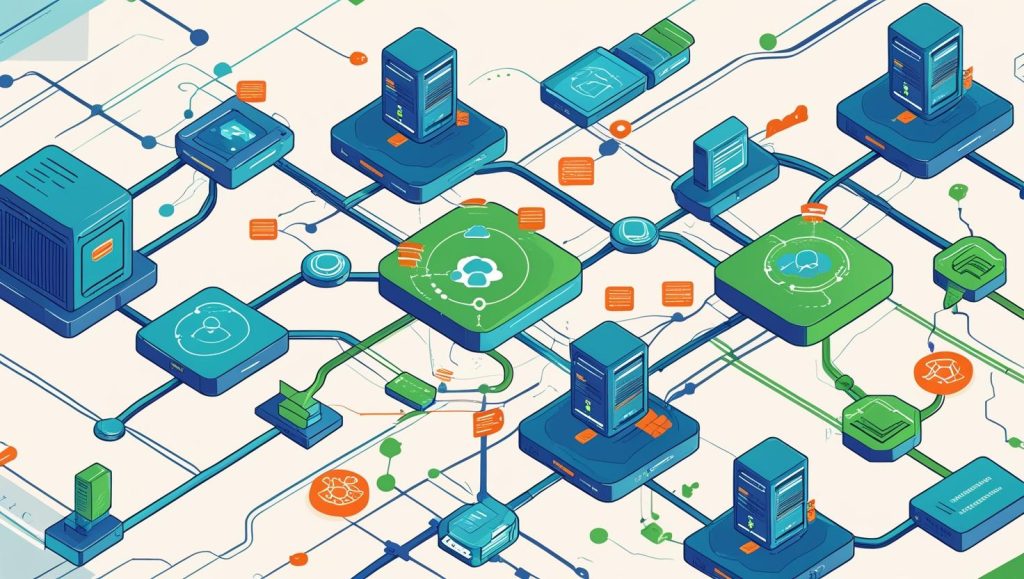In 2025, the use of proxies continues to grow as individuals and businesses seek faster access, increased privacy and flexible solutions for web tasks. Each proxy type offers unique benefits depending on your needs—from bypassing geo-restrictions to large-scale web scraping.
Here’s a breakdown of the main types and how to use them effectively.
Quick proxy overview
- http proxies: ideal for browsing and content filtering
- socks proxies: flexible, support various traffic types including email and gaming
- residential proxies: use real IPs from ISPs, hardest to detect
- datacenter proxies: fast and cheap, but easily blocked
- transparent proxies: used in corporate or institutional networks, often without user awareness
What is a proxy server
A proxy server acts as a middleman between your device and the internet. Instead of your requests going directly to a website, they pass through the proxy first. This masks your original IP address and can provide faster access, more privacy and additional functionality depending on the proxy type.
Http proxies
These are built specifically to handle web-based traffic:
- web browsing
- filtering access to certain sites
- scraping content
- caching commonly visited pages
They only support HTTP and HTTPS protocols, which makes them efficient for browser-based activities but limited for other traffic.
Socks proxies
More versatile than HTTP, socks proxies can manage all kinds of traffic, including:
- games
- torrent clients
- streaming services
Socks5 is the most advanced version and includes authentication and UDP support.
Residential proxies
These proxies use IP addresses assigned to real households by internet service providers. They are:
- very hard to detect
- perfect for ad verification and competitor monitoring
- great for bypassing detection in web scraping
- more expensive due to limited supply and high demand
Datacenter proxies
These IPs are generated by cloud hosting companies, not tied to real users. Advantages include:
- high-speed performance
- low cost
- ideal for large volumes of requests
However, they are more likely to be blocked by websites due to their unnatural traffic patterns.
Proxy vs vpn
| Feature | Proxy | VPN |
|---|---|---|
| encryption | usually none | full traffic encryption |
| coverage | specific apps or browsers | entire device |
| speed | faster, no encryption | slower due to encryption |
| privacy | masks IP only | hides IP and encrypts data |
| best use case | scraping, unblocking | secure browsing, sensitive data |
Common proxy use cases
web scraping and automation
By rotating IPs and avoiding bans, proxies help collect large-scale data efficiently.
seo monitoring
Use geo-targeted proxies to see accurate search results from different regions.
ad verification
Check ad placement and detect fraud by simulating user traffic from real locations.
bypassing geo-blocks
Access content that is restricted to specific countries or regions.
Proxy risks and limitations
- free proxies may log and sell your data
- most proxies do not encrypt traffic
- some inject unwanted ads or malware
- advanced websites can detect and block many proxy types
Proxy faq
are proxies legal
Yes, in most countries. But what you do with them must also follow the law and site policies.
can proxies be detected
Yes. Residential proxies are the hardest to detect. Datacenter proxies are easier targets.
which should I use: socks5 or http
Choose HTTP for web-only tasks like browsing and scraping. Use SOCKS5 for any non-web traffic.
should I use a free proxy
Generally no. They are unreliable, insecure and often misuse your data. Paid services offer better safety and performance.
Proxies remain powerful tools when used correctly. Whether you need speed, location switching, or access to blocked content, choosing the right type of proxy makes a difference. They’re not as secure as VPNs, but their flexibility and performance make them essential for many tasks.
Read next: Top 5 uses for proxies in business and everyday life




